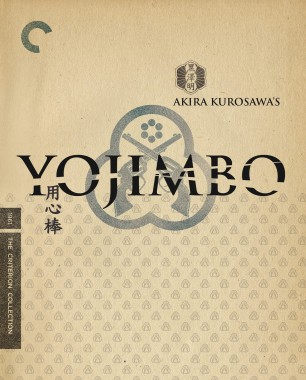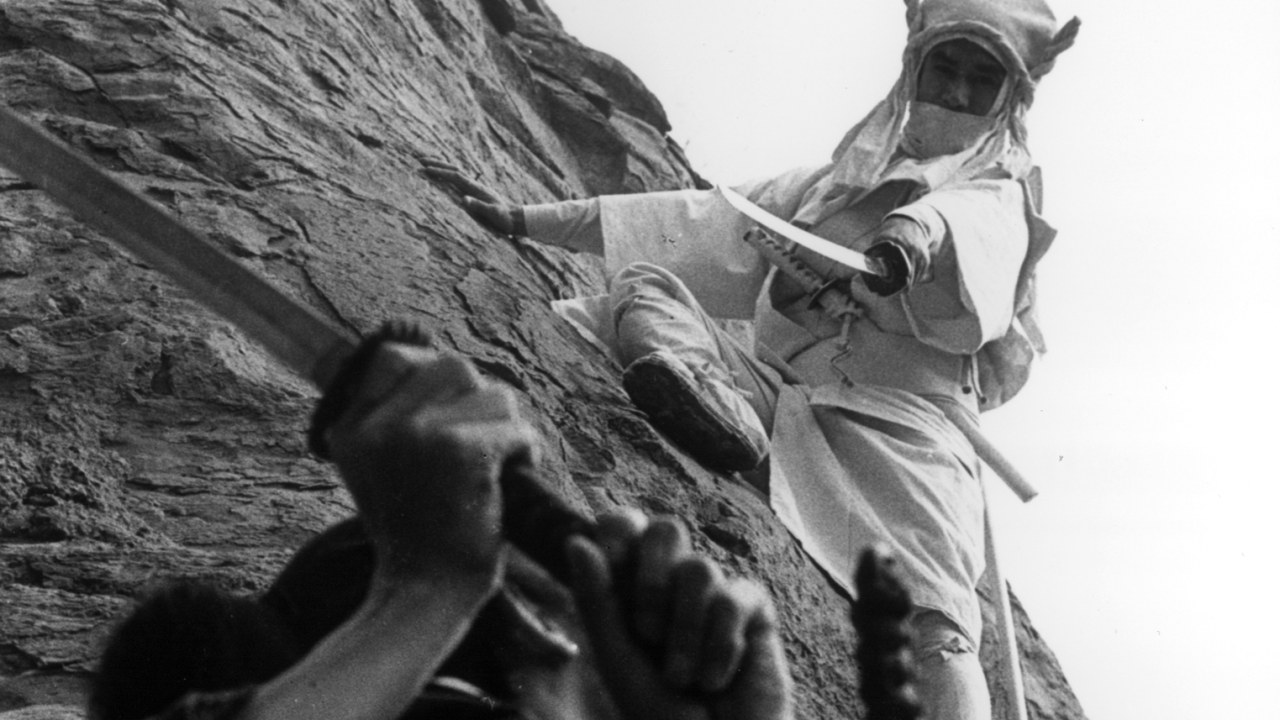Samurai Spy

Years of warfare end in a Japan unified under the Tokugawa shogunate, and samurai spy Sasuke Sarutobi, tired of conflict, longs for peace. When a high-ranking spy named Tatewaki Koriyama defects from the shogun to a rival clan, however, the world of swordsmen is thrown into turmoil. After Sasuke is unwittingly drawn into the conflict, he tracks Tatewaki, while a mysterious, white-hooded figure seems to hunt them both. By tale’s end, no one is who they seemed to be, and the truth is far more personal than anyone suspected. Director Masahiro Shinoda’s Samurai Spy, filled with clan intrigue, ninja spies, and multiple double crosses, marks a bold stylistic departure from swordplay film convention.
SPECIAL EDITION FEATURES
- Restored high-definition digital transfer
- Exclusive video interview with director Masahiro Shinoda
- Gallery of key characters in the film
- PLUS: An essay by film scholar Alain Silver
Cover by Eric Skillman
SPECIAL EDITION FEATURES
- Restored high-definition digital transfer
- Exclusive video interview with director Masahiro Shinoda
- Gallery of key characters in the film
- PLUS: An essay by film scholar Alain Silver
Cover by Eric Skillman

Cast
- Koji Takahashi
- Sasuke Sarutobi, spy
- Shintaro Ishihara
- Saizo Kirigakure, spy
- Eitaro Ozawa
- Shigeyuki Koremura, leader of spies
- Kei Sato
- Takanosuke Nojiri, lieutenant
- Mutsuhiro Toura
- Mitsuaki Inamura, spy
- Tetsuro Tanba
- Sakon Takatani, lieutenant
- Eiji Okada
- Tatewaki Koriyama, lieutenant
- Seiji Miyaguchi
- Jinnai–Kazutaka Horikawa, clan minister
- Minoru Hodaka
- Genba Kuni, magistrate
- Misako Watanabe
- Okiwa, dancer and spy
- Yasunori Irikawa
- Yashiro Kobayashi, Christian samurai
- Jitsuko Yoshimura
- Omiyo, orphan in Joshinji Temple
- Jun Hamamura
- Joshinji Temple priest
Credits
- Director
- Masahiro Shinoda
- Screenplay
- Yoshiyuki Fukuda
- Based on the novel by
- Koji Nakada
- Cinematography
- Masao Kosugi
- Art direction
- Junichi Osumi
- Music
- Toru Takemitsu













